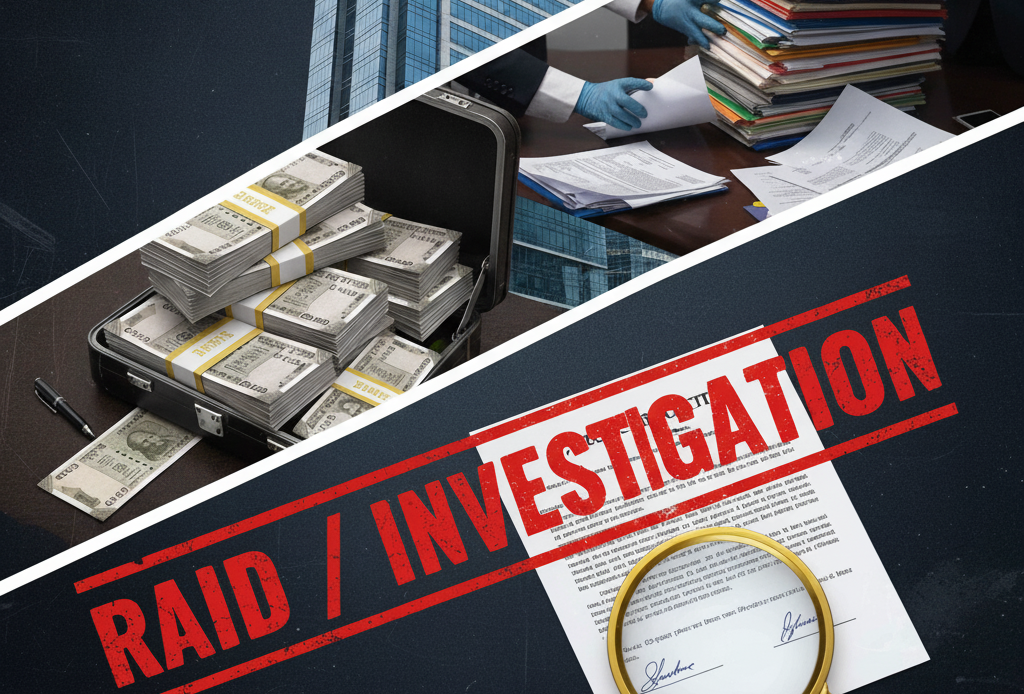The PMLA Probe: Siphoning Funds and the ‘Related Party’ Loophole
The most severe line of investigation is under the PMLA, which focuses on the alleged siphoning and diversion of public funds. The genesis of this probe lies in a report by the Securities Exchange Board of India (SEBI). This report raised serious questions about Inter-Corporate Deposits (ICDs)—a form of short-term lending—totaling over ₹10,000 crore that were allegedly funneled from R-Infra.
The central allegation is the use of a purportedly undisclosed entity, CLE Pvt Ltd, which investigators claim was an unacknowledged ‘Related Party’ to the listed company. This is a critical legal and corporate governance charge. In listed companies, transactions with related parties—such as promoters, key management personnel, or other group companies—must be conducted at “arm’s length,” meaning on terms that would be negotiated between two completely independent entities. Furthermore, all material RPTs require mandatory approvals from the Audit Committee and shareholders, with related parties generally excluded from voting on such resolutions.
By allegedly masking CLE Pvt Ltd as an unrelated entity, the ED claims the company bypassed these crucial governance checks, enabling the diversion of funds to other heavily indebted Reliance Group companies. The investigative theory suggests that this money, which should have been retained or utilized by R-Infra, was instead used for the ‘evergreening’ of older loans or to plug funding gaps in other group firms, a practice that constitutes a criminal offence under PMLA. This probe is part of a larger, ongoing investigation that includes alleged loan diversions and financial irregularities linked to over ₹17,000 crore of loans taken from various banks.
The FEMA Angle and the Gravity of Regulatory Violations
Running parallel to the PMLA case, the ED has also launched a probe under FEMA, which deals with foreign exchange transactions. The recent searches are reportedly linked to an old engineering, procurement, and construction (EPC) contract for the Jaipur-Ringas highway, awarded back in 2010. The company’s public statement clarified that this was a domestic contract, and it has no continuing relationship with the contractor. However, the ED is specifically looking into allegations of illegal remittances overseas through the misuse of these contract payments.
The seriousness of a FEMA violation cannot be overstated. Unlike the PMLA, which targets criminal proceeds, FEMA is a civil law, but the financial penalties are substantial and intended to be a strong deterrent. Under FEMA, a person who contravenes any provision can face a penalty of up to three times the sum involved in the contravention, or ₹2 lakh if the amount is not quantifiable. Crucially, in cases involving foreign exchange, foreign security, or immovable property outside India exceeding a prescribed threshold, the law provides for the potential for confiscation of equivalent assets in India and even prosecution that can lead to imprisonment. Furthermore, the FEMA framework operates with virtually no limitation period, meaning old violations can be reopened and penalized at any time.
Broader Context: The Yes Bank Connection and Group Debt
The current scrutiny on R-Infra is inextricably linked to the wider financial downfall of the Anil Ambani Group. Investigative agencies, including the ED, are actively probing the group’s relationship with Yes Bank, whose former management is already under investigation.
Sources suggest that Yes Bank cleared substantial loans—reportedly over ₹3,000 crore—to various Anil Ambani-owned companies, including Reliance Housing Finance Limited (RHFL), between 2017 and 2019. The ED is probing a potential “quid pro quo arrangement,” where the bank’s promoters allegedly received payments in their privately-held concerns just before sanctioning these loans. This complex web of financial transactions, corporate debt, and alleged regulatory breaches paints a clear picture of the highly leveraged and interconnected nature of the group’s financial operations. Companies like Reliance Communications (RCom) and Reliance Home Finance are already facing insolvency and other severe legal battles, setting a challenging backdrop for the future of R-Infra.
The Company’s Defence and Outlook
In its regulatory filings, Reliance Infrastructure has vigorously defended itself against the ED’s FEMA probe and raids. The company maintains all transactions are fully compliant with laws and regulations, claiming the allegations pertain to old matters and that it has cooperated with agencies. It highlights its formal separation from RCom and RHFL troubles, and notes that Anil Ambani is no longer on the board.
While the company attempts to de-link itself from the legacy issues of the broader group, the ED’s persistent and widening net of investigations ensures that the legal storm is far from over. The eventual outcome will not only determine the fate of R-Infra but will also serve as a major test for India’s regulatory framework in enforcing corporate governance and financial transparency.
Disclaimer: The information in this article is based on reports, details, and media coverage from reputed news outlets. Allegations mentioned are subject to ongoing investigation and legal proceedings.


Write Your Comment